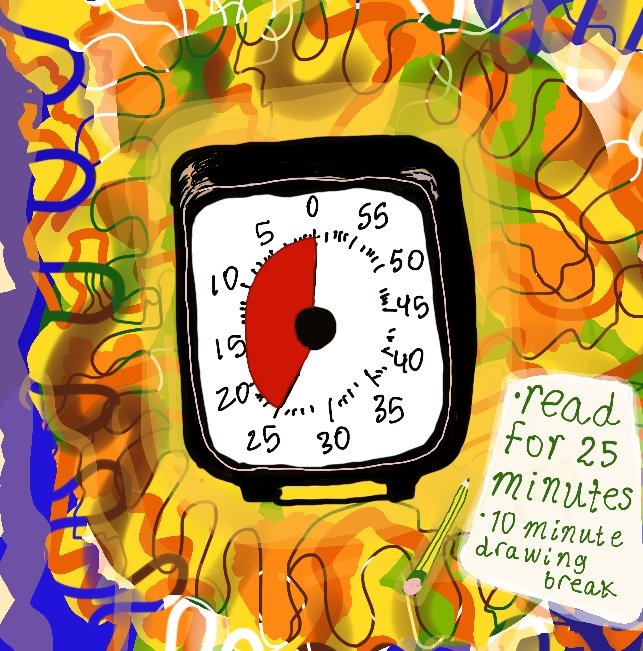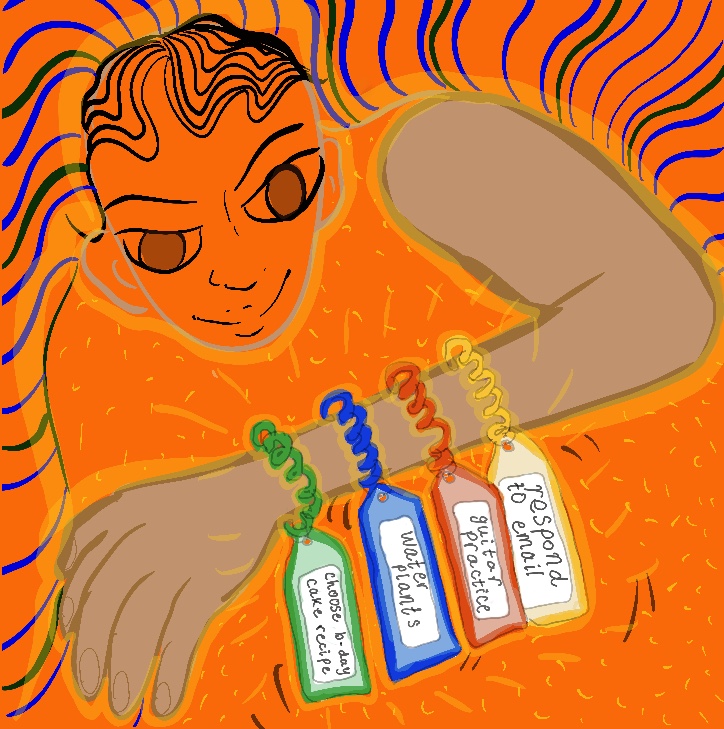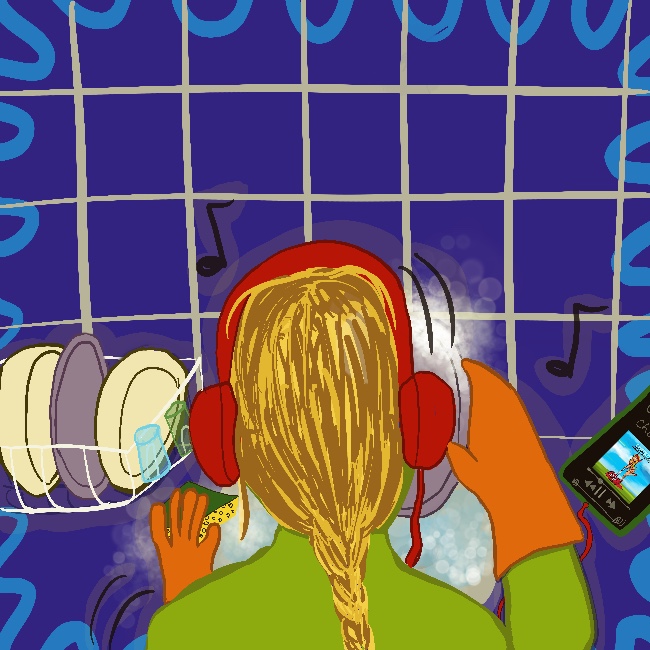Creative Executive Function Strategies
by Amelia
Because of the way your brain is wired you may frequently encounter challenges related to executive function. As you grew up, methods for time management and organization may not have been introduced or modeled in ways that were easy for you to understand and adopt.
Many students in grade school are given planners and told to use them for keeping track of assignments. This might not work for a student who needs more visual cues and struggles to remember to take the planner out once they are at home. In this case, something like a color-coded calendar on a wall could provide a persistent reminder.
For an organizational strategy to be effective, it has to be in alignment with your individual processing strengths and support your areas of weakness. Without information about how your brain works and access to a variety of strategies, it is easy to internalize the idea that that you struggle because you are somehow inherently flawed. You may also feel shame about being "late" to learning these skills. This takes a toll on your self-esteem which creates yet another obstacle to figuring out what works for you.
You don't need to be stuck here forever. Becoming aware of your preferred processing modality (sometimes referred to as 'learning style') is a critical component of figuring out what strategies will work for you. I will be expanding on this idea and exploring processing modalities in blog posts to come. Being familiar with your own is an essential part of figuring out what methods are most likely to suit your individual needs and lead you to success. Greater awareness of this can vastly improve your quality of life.
There are a multitude of options for ways to schedule and keep track of your time and how you want to be using it. Among all of the strategies you encounter only some of those will work for you.
I will give a few examples that may sound familiar or appealing, but I would like to emphasize that there everyone has their own combination of strengths, preferences and sensitivities that compose their processing modality.
Visual
It is common for neurodivergent people to have a preference for visual information as it is concrete and can last longer in the brain. For some, myself included, a visual representation can make the abstract concept of time feel more concrete.
One tool I like to use is the Time Timer. It is a timer that gives a physical representation of time counting down and helps me keep my focus on tasks for a set period of time. It helps me overcome a tendency to zone out and spend hours on something that I can realistically accomplish in a much shorter amount of time by reminding me to stay on track as I have only allotted a certain amount of time

Tactile/kinesthetic
For those who have a need for tactile input and/or movement, one creative method I have seen consists of writing tasks on key tags and attaching them to wristbands. It is hard to forget about these clanking appendages while they are on, but as tasks are completed they can be removed, giving you a concrete sense of completion and progress.
I got the idea for these Task Tags from tiktok user @m.g.h.g.

Auditory
Pairing an activity with listening to something with a predetermined duration like a song, album, or podcast episode can let you know when to stop, transition to another task, or provide enough stimulation to help you get started in the first place and stay engaged with the task so you can complete it.
Being intentional about what your choice, like selecting upbeat music to match a high energy activity, a podcast topic related to what you want to work on, or soothing sounds for a stressful task can boost the effectiveness of this method.

The novelty of different methods to choose from may be a necessary element for some. If this sounds like you, having a rotating selection of strategies to match changing energy levels and sensory preferences might be a good idea. Reaching this understanding allows you to reframe perspectives like "I just give up easily." or "Nothing works for me."
It is common for neurodivergent individuals to simultaneously desire and feel averse to structure. We may become aware that we could benefit from systems to help with organization of our space and time but feel bored and confined by the rigidity of the standard iterations of structure we have been taught. Flexible systems that can be adapted and adjusted to our needs are a must! With a system that works for you, your personal success and fulfillment can be greatly improved.
There are many more methods than the introductory examples listed above. Knowing how your brain specifically works is a huge benefit in figuring out which techniques will work for you.
Gaining this understanding can seem like a major undertaking in and of itself- and it is, but it can be extremely rewarding, valuable and will have a tangible impact on your life.
You don't have to do it alone. Having someone on your side to support you over time as you explore different methods has many benefits. Within a coaching relationship you can expect accountability as you implement and troubleshoot your new systems, and help with learning what to look for and ultimately how to reach your own insights about yourself and your process.